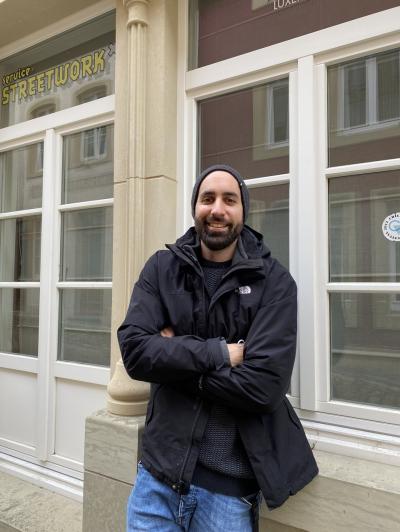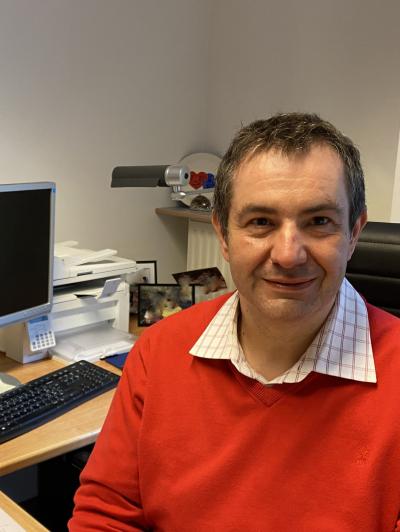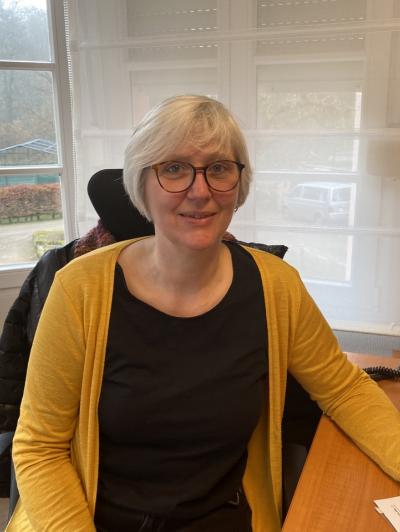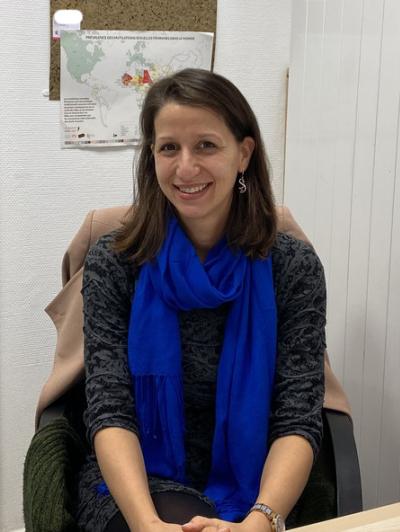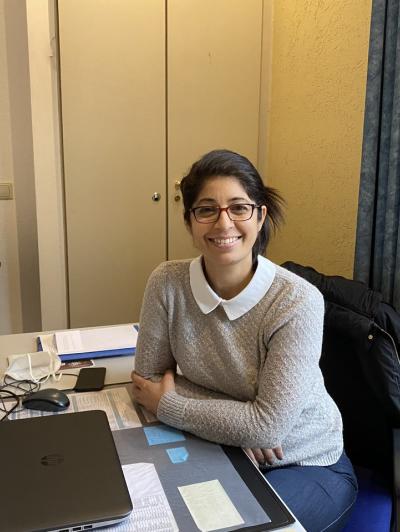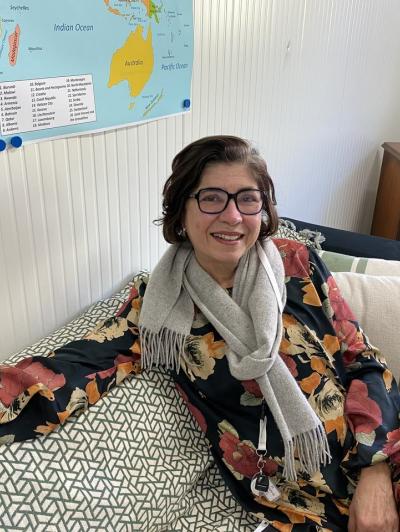
Anne Staudt: A day care house like no other
Wednesday 31 March 2021
Anne Staudt is in charge of a day care centre that is a bit "different" from what we are used to. Located in two refugee shelters, Ettelbruck and Diekirch, and run by Caritas Jeunes & Familles, the shelter faces many challenges, and not the least. For Anne Staudt, social work is the priority.
WHAT MAKES YOU DIFFERENT FROM A NORMAL day care CENTRE?
There are several differences. The first is the work that is done with the parents. Normally in a day care centre, this work is limited to moments of difficulty for the child, if there are any. Here, we spend a lot of time with the parents, explaining the school system, translating the documents they receive, acting as an intermediary with the teachers, making them aware of the different educational issues, listening to them. We must not forget that most of these parents come from cultures very different from ours. Many of them have never been to a school. Most of them do not yet speak our language. Some are so overwhelmed by their own problems and suffering that they cannot give their children enough attention. Finally, others, the single mothers, do not have a moment to themselves. They all need help. So we are there all morning just for the parents. They know they can come in if they have any questions and once a week we also go round the shelter to inform the families about the progress of their child, the next activities or just to see how they are doing.
Another big difference is working with the children, especially in the first few months of their arrival at the shelter. Many of the children have never been to school before and do not even know how to hold a pencil in their hand. We also notice that most of the children who arrive at the shelter do not know how to play. They have never had toys and do not know what to do with them. Yet playing is essential for children to build themselves up. Finally, we also notice that many children, because of the difficult situation in their country and the months of errancy before arriving in Luxembourg, are not used to following rules and having limits. That's what we work with them on. Of course, we also help them integrate into their school, do their homework, offer them activities to get out of the shelter and get some fresh air, we put them in contact with sports clubs, etc.
If the first weeks, parents and children are sometimes sceptical, they are then very happy. We have become a reference point for many parents and children.
HOW WAS HOME SCHOOLING DURING THE LOCKDOWN?
It was very difficult, especially at the beginning because we also had many children who had recently arrived. We had to form groups that took turns because there was no space and no staff to take care of them all at the same time. There are about sixty children between Diekirch and Ettelbruck and about fifty young people to follow, their families not being able to help them at all. Fortunately, the teaching staff, with whom we have good contacts, were very understanding. The families also received tablets thanks to the generosity of many donors. The children and young people used them every day for their home schooling. We did our best.
WHAT DO YOU LIKE ABOUT WHAT YOU DO?
It's the variety. No day is the same. Every day is different and I like that. You never know how the day will go and I also learn a lot from the parents and the children. Another thing I really like is the freedom of action we have. This allows us to react quickly to requests, for example, for young people who come in large numbers for individual advice. Finally, it is to see that both the children and their parents progress and become more and more autonomous. That is the objective! We must not forget that one day families will leave the shelter for individual housing and that they must be ready for this.
WHAT DO YOU DISLIKE THE MOST?
It is certainly the mornings when the authorities come to collect the families who have been refused asylum. The children are taken away without being prepared and without being able to say goodbye to their friends. It is difficult. We, too, as adults, are not prepared for these dramatic situations. To console myself, I tell myself that wherever they go to continue their lives, they will take with them all that we have been able to show them and teach them in these months and years spent together. It will be useful to them, for sure! Fortunately, these situations are rare. In general, we see our children and young people grow and progress like all the children in Luxembourg.
Linked news
Donate
Your donation is essential to ensure the continuity of Caritas Luxembourg's actions in the service of the poor.
Other donation methods
